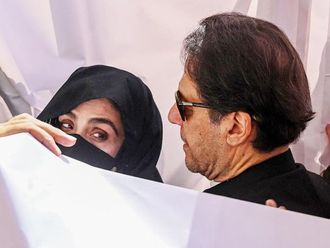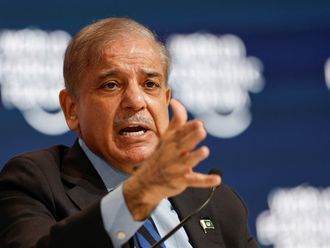Islamabad: Imran Khan, now 64, was born to a Pashtun family in Lahore where he grew up playing cricket.
He played his first international match in 1971.
After graduating from school and college in Lahore in 1972, his parents sent him for his post-graduation to Oxford University, England.
Even while attending the university, his love for cricket endured and finally he started to play for the country, leading Pakistan to a great victory as World Cup Champion in 1992.
The game of cricket not only made him a millionaire but also a darling of the masses.
A young and attractive Khan quickly turned into a social personality when he decided in 1994 to establish the Shaukat Khanum Memorial Cancer Hospital & Research Centre in Lahore. The idea to establish a cancer hospital in the country struck him when his own mother died, suffering due to the lack of medical facilities in the country. His social project was a hit in the country and abroad, and his popularity soared.
Khan then married Jemima Goldsmith, daughter of British billionaire Sir James Goldsmith, in 1995, but the couple filed for divorce nine years later, in 2004.
The couple was popular in Pakistan and abroad. Jemima’s help in fund-raising helped Khan equip his pet project with top-of-the-line equipment, making it one of the country’s best cancer hospitals.
Next, Khan decided to establish his own political party, Tehreek-e-Insaf, (Movement for Justice), or PTI, in April 1996. The PTI was seen as a “third option” for Pakistani voters and emerged as a Centrist party with an objective to create a welfare state where the state is responsible for the masses’ education, health and employment.
Khan won a single seat in the 2002 general elections in Pakistan but he quickly became disappointed with the system and boycotted the 2008 election.
By 2002, Khan had revived the party, reorganised it in Khyber Pakhtunkhwa and Punjab. PTI took part in the 2013 polls, where it received more than 7.5 million votes, making it second in the number of votes won and third in the number of seats won.
The party decided to sit in the opposition rather than joining as coalition partners with the nation’s two major traditional parties Pakistan Peoples Party (PPP) and Pakistan Muslim League (Nawaz) (PML-N).
Khan sold his London flat in 2003 and decided to settle back down in Pakistan’s capital city, Islamabad, where he grows own food. He once called it as “my idea of paradise.”
One reason why his party became popular among youth was that PTI was seen as an ‘anti-status quo movement’ advocating egalitarian and modern Islamic democracy.
According to the 2013 election results, PTI was the third-largest party in the National Assembly, and emerged as the governing party of Khyber Pakhtunkhwa.












